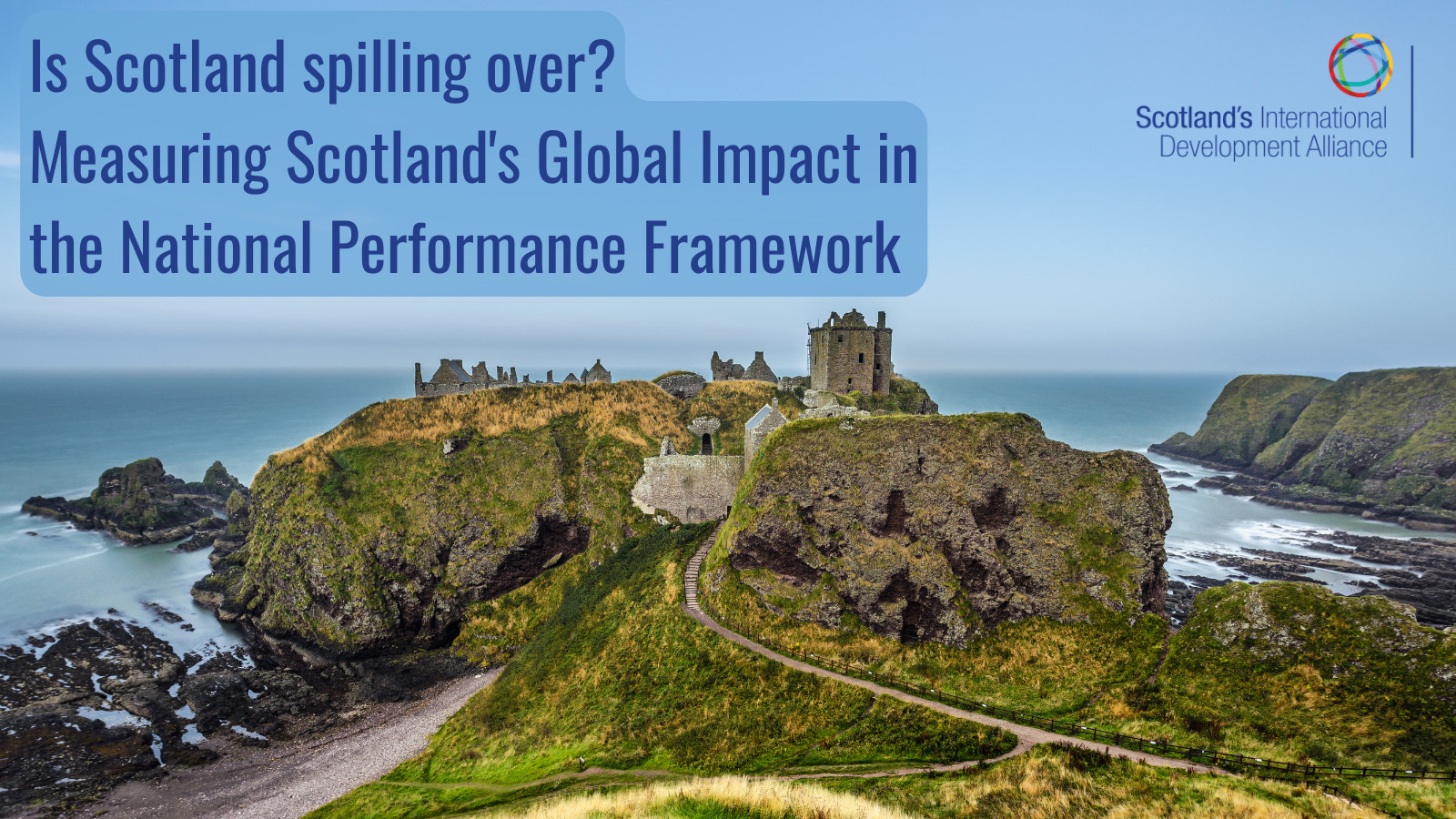How can Scotland accurately understand the impact we have on other, particularly low and middle income, countries? This question is central to research released by Scotland’s International Development Alliance today.
The research, carried out by Dr Graham Long and John Davis of Newcastle University, explains the concept of ‘spillovers’ – the ways in which activity in Scotland affects sustainable development beyond its borders. The report calls for more to be done to develop methodologies to understand the impacts, positive or negative, of Scotland’s global contribution to sustainable development.
Spillover measurements do exist for the whole of the UK and show overwhelmingly negative impacts. The UK ranks 152nd out of 163 in terms of transboundary spillover effects. This suggests a similarly concerning performance for Scotland, but there are challenges in collecting data at this level.
Scotland’s International Development Alliance calls for better measurement of global impact to be included in the National Performance Framework, which is where Scotland currently measures progress. Current indicators of Scotland’s international outcome are flawed, and new measurements could be introduced. Recommended indicators include:
- Introduce an indicator on Scotland’s “material footprint” to better track the environmental footprint of Scotland’s raw material consumption, in line with existing UK practice and the Sustainable Development Goals. By measuring consumption rather than production, and accounting for inputs from anywhere in the world, this measure provides a useful estimate of raw material use which represents a significant impact on people and planet.
- Measuring Scottish participation in global business human rights initiatives or corporate social responsibility reporting would give an initial gauge of Scotland’s impact on low income countries. Sources could include B Corps, Fairtrade certification, or participation in the UN Global Compact.
- Measuring Scotland’s political voice. Scotland has a role in providing a voice on key global issues. For example, speaking out on loss and damage finance or in support of vaccine equity can and does have a positive impact globally. The Global South Panel could assess whether Scotland’s international contribution has been positive or negative over a set time period in terms of its public stance on a range of issues related to global solidarity.
Other recommendations include developing indicators to track:
- socio-economic impacts in Scotland’s global value chains
- fossil fuels extraction and export
- the arms trade (manufacture or storage of weapons and arms)
The Alliance also recommends developing a longer-term multi-stakeholder approach to apply spillover methodologies to Scotland. Addressing challenges in methodology and sourcing data would enable a more accurate picture of Scotland’s global impact to emerge.
The Alliance’s Chief Executive, Frances Guy, said:
“The Scottish Government’s ambition to make a positive contribution internationally is to be applauded, but to do so effectively requires new and innovative thinking around how we measure our global impact. These recommendations would result in more meaningful tracking of progress, and incentivise a positive contribution to global sustainable development. We look forward to engaging with the upcoming National Performance Framework Outcomes review to make the case for these important new indicators.”
You can read the report and the Alliance’s recommendations here.

